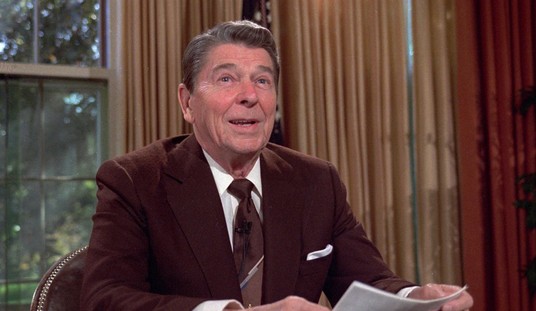Bin Laden’s taking of credit for the attempted crotch bombing on Christmas Day is a sign of desperation, an attempt to preserve what little is left of his image of being divinely guided and powerful in an almost inhuman manner. There is no evidence that bin Laden had any role in the plot, aside from obviously setting up the original al-Qaeda network, but he has to take credit for something at this point.
Bin Laden’s message is more than the product of a large ego. It is part of a strategy for survival. Al-Qaeda has been unable to repeat an attack on the scale of 9/11, and since those attacks, U.S. forces have overthrown the Taliban and Saddam Hussein, numerous Muslim countries have taken a harder line against it, and the group has suffered a dramatic drop in popularity as a result of its failures and its killing of eight times as many Muslims as non-Muslims.
Confidence in bin Laden and Sunni jihadists as a whole is dropping as well, particularly since the turnaround in Iraq. Al-Qaeda’s inability to spark a popular uprising or anything remotely resembling the resistance of the mujahideen that fought the Soviets is a potentially crippling blow to its prestige. This makes it all the more important that it creates a mini-state in Pakistan, makes visible advances in Afghanistan, and seizes Somalia, Yemen, or some other territory. Dr. al-Fadl, the former mentor of Ayman al-Zawahiri, has viciously criticized al-Qaeda for its tactics, even going so far as to say it is not acting in accordance with Allah’s will or it wouldn’t have brought such misery to the Muslim world and suffered defeats.
The failure of al-Qaeda and the Sunni jihadists, particularly those that kill civilians and use suicide bombers, is leaving open a window for two forces to emerge: moderates and the Iranian regime and its proxies. There are those Muslims, like those marching on the streets of Tehran, who point to al-Qaeda and the failures of tyrannical governments to provide for their people as proof that the entire ideology of radical Islam needs to be done away with. Then there are those still committed to armed jihad, but have lost faith in the Sunni extremists. For them, Iran is filling the void as a more credible leader of the fight against the West’s so-called oppression.
It is becoming clearer and clearer that al-Qaeda and the tactics that define it are not working. This stands in sharp contrast to Hezbollah and other Iranian proxies who bring order, social services, and victories in battle using tactics more in line with guerilla warfare. On almost every front, from Yemen to Lebanon to Iraq to the Palestinian territories, the Iranians have had more success in asserting influence and combating the West than al-Qaeda. This shift is occurring despite the fact that the majority of the Muslim world is Sunni. Hamas and the Palestinian Islamic Jihad are viewed as nearly being puppets of the Iranians. Hezbollah has a huge amount of support among Sunnis despite their theological differences. The Muslim Brotherhood is growing closer to Iran, and al-Qaeda and the Taliban rely upon the Iranians for support, although debate continues about how extensive and critical it is.
Syria is firmly in Iran’s bloc. Qatar, despite its alliance with the U.S., has positioned itself with Iran. Iraq has obviously grown closer to Iran since the days of Saddam, publicly lashing out at Syria, but not Iran, for supporting the insurgents. Bahrain has a Shiite majority and Saudi Arabia’s oil-rich Eastern Province is up to 90 percent Shiite. Although the Gulf states live in fear of Iran, as this shift in power happens and doubts about the U.S. commitment to defend them rise, they will be tempted to cater to Iran’s increasing leadership role in the Muslim world for their own safety.
This competition doesn’t mean that Iran and al-Qaeda don’t cooperate, but bin Laden and those like him are still threatened by the increased attention the world is giving to Iran. Bin Laden needs a larger-than-life image of being America’s worst enemy, able to unleash his followers from around the world with a single decision. Expect al-Qaeda to try to demonstrate its ability and credibility as jihadists by increasing the tempo of smaller attacks in the West in order to steal the headlines. It also needs some sort of battlefield victory that allows it to create a safe haven, both for operational and ideological purposes. Bin Laden and al-Qaeda are also trying to repair his image by going to greater lengths to tie his actions to U.S. foreign policy and attempting to justify their killing of Muslims.
It is even possible, although not likely, that al-Qaeda and similar militants will try to gain some legitimacy by focusing on military targets and acting more as a guerilla warfare force as Iran’s proxies have successfully done. There will be academics in the West who try to argue that this shift means that the terrorists we’ve come to fear have been minimized and the armed elements of the Middle East are legitimate guerilla forces now simply seeking liberation. There are three types of jihadists, as I’ve previously pointed out, and we should take no comfort in the rise of the more politically skillful kind.









Join the conversation as a VIP Member